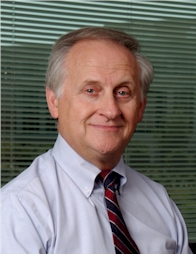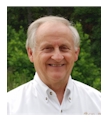 In a recent weekend seminar focusing on making Kingdom disciples, I encountered several questions regarding how the church is to be in the world but not of it. In Making Kingdom Disciples, A New Framework, I give a framework for being in the world but not of the world. The framework requires knowing the Word, knowing what we believe and why, and knowing the transforming effect truth is to have upon our lives. Included in the framework is the need to understand the world–not only to keep ourselves unspotted from the world, but also to know how to better communicate God’s truth in this world. Still, through my study, experience, and analysis I have a number of concerns about the church’s current involvement in our world.
In a recent weekend seminar focusing on making Kingdom disciples, I encountered several questions regarding how the church is to be in the world but not of it. In Making Kingdom Disciples, A New Framework, I give a framework for being in the world but not of the world. The framework requires knowing the Word, knowing what we believe and why, and knowing the transforming effect truth is to have upon our lives. Included in the framework is the need to understand the world–not only to keep ourselves unspotted from the world, but also to know how to better communicate God’s truth in this world. Still, through my study, experience, and analysis I have a number of concerns about the church’s current involvement in our world.
First, as a church, do we completely understand our present situation? Much is going on in our world that is chaotic, fragmented and disconnected, causing us to trivialize the situation and see it has a passing fad. Yet, this very chaos is shaping our lives and culture. Second, if we do understand that what is happening in our world is shaping our culture and lives, do we know what to do about it? Are we prepared to give an explanation for what we believe and why, as the Apostle Peter instructed I Peter 3:15? Third, the church is battling two extremes. One is an indifference to the world around us, demonstrated by caving in to today’s irrational ideas of tolerance and political correctness. The other is capitulating to the world’s culture, busily embracing postmodernism’s pop cultural, market-driven focus where there is more form than substance. This has required a rewrite of Jesus’ Great Commission to read, “as you are going into the world, hold on to your faith but do not challenge others with that truth because after all, who’s to say you are right? Practice your religion in your private world, but do not bring it into the market place lest you be viewed as arrogant, dogmatic, and condescending to those who do not share your beliefs.
Also, as you are going into the world, be careful the topics you talk about lest you offend your neighbor and erect a barrier between you.” Growing out of that discussion and the subsequent questions, I coined a word for that context with which I tried to demonstrate how not to be offensive with our words. The word I flashed on the screen was “indolecism.” I did not want to offend anyone with the word lazy or slothful, but I suggested that I believe one of the reasons the church is ineffective is because Christians are lazy. They are not willing to expend the energy and time to study the situation, which at best produces a Christianity that is focused on me and mine rather than God. We have not understood what has gone before us in history and especially church history; therefore, we continue to fall into the same traps where our very survival is at stake. We would rather embrace the ways of the world to do our thing, even in the name of Jesus, than we would to think with a transformed mind about the world. I say, shame on us; God deserves better than that. Church history is strewn with wreckage of so many attempts of the church to buy into the world’s mold and ideologies, only to run aground and break apart. If we do try to pay attention to history, our tendency, because of the world’s influence, is to see it as simply one event after another with no connecting thread to help us make sense of those incidentals. Hence, we conclude history is relative and what is happening now is about the best I can try to understand, which of course you cannot do in a vacuum. In our seminar on modernity and its impact on our North American situation, I developed a one page schematic beginning with 1600 AD on to 2000 AD. One of the question posed was how North America moved from such a high standard of ethics and morality, which reflected a Christian consensus, to today’s street corner ethics and marketplace morality that has little or no semblance of Christian truth. Again, I concluded with the above group that I did not mean to be simplistic with the charge of indolecism, but we need to commit ourselves to being kingdom disciples who understand the Word and the world, to be thinking with a transformed mind in order to know what God would have us to do.
Those comments led me into a new book by David F. Wells, Above All Earthly Pow’rs, Christ in a Postmodern World. Wells has already instructed us in the past with other books. This fourth and final volume concludes the series. As I read Above All Earthly Pow’rs, I was encouraged that I was not alone in my concerns as to what is happening in evangelicalism in general and within the evangelical churches in particular. I was reminded of Os Guinness’s challenge in a book we reviewed this year, Prophetic Untimeliness. In our attempt to be up-to-date and make the Gospel relevant, we are actually becoming more and more irrelevant. The church has lost is salt and light on the world today, as a result. We cannot be like that which we challenge and make an impact. David Wells understands today’s world and how we have reached our present circumstance. He demonstrates over and over how we have negotiated, trivialized, or rewritten, by careful editing, the truth of the Gospel all in our attempt to be relevant. What this has done, according to Wells, is to challenge the church’s integrity with its message, therefore asking, does the church have a missional future? Wells clearly demonstrates how the church is not being the church today because it is buying into a spirituality that makes truth peripheral at best. The church, in its paranoia about being relevant has taken on “postmodern habits of thought and even unbelief.” Wells points out that we have jettisoned our Christian orthodoxy by tailoring our message for the new consumer audience.
The problem today is that “truth” appears to have no market value to the non-churched audience and even to some within the church. One example says Wells is how sin is preached, if in fact it is preached. Sin is presented not as an affront to a holy God but that which “harms the individual.” And in some churches, he says all we need to complete the picture of our worship, cast in light entertainment, is “popcorn.” Wells uses statistics to show that America’s belief in God is slipping because we are not giving people something solid to hold to. All is relative or pragmatic and not only is that what the pop culture around us is saying, but that message is reinforced within the evangelical community. He points out that the emergence of postmodernism and growing interest in religion and spirituality define the American culture and neither in themselves should encourage us. The way we are being taught to engage culture is by being like it. He further points out that our task “is not only to understand the nature of biblical truth but also to ask how that truth addresses the issues of the day.” Churches have a God-given assignment to help the people see truth in its preaching and teaching but also to help Christians understand how to engage the world around us. Being a kingdom disciple requires our thinking about God, the Word, the world and especially, as Wells says, the things that the world imposes on us-the workplace, appointments made, people we will meet, and jobs that must be done.
As I read Above All Earthly Pow’rs, I was reminded of a quotation that I have frequently used, “it is not what we think we are–what we think, we are.” Wells says that we do not think enough about the world and why it is as it is, and he is right. For example, I have heard some leading evangelical preachers talk about the revival of spirituality today uncritically, instead of first explaining how today’s interest in spirituality is so different from how the Church has understood spirituality in the past. Wells addresses that very cogently throughout this book. Preachers, teachers, parents, Christians, this is the kind of book we should be reading in our effort to think and live like kingdom disciples. We cannot go with the flow and embrace a form of Christianity without the substance and make a difference. The great commission in Matthew 28 calls us to make a difference, to make kingdom disciples. What we may be hearing in some circles of evangelical may sound relevant, exciting, new, and we are tempted to applaud, but the real question is, does the truth have a life-transforming influence on us and are we making any difference in our world, as a result?
In summary:

